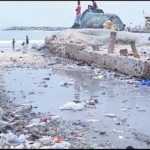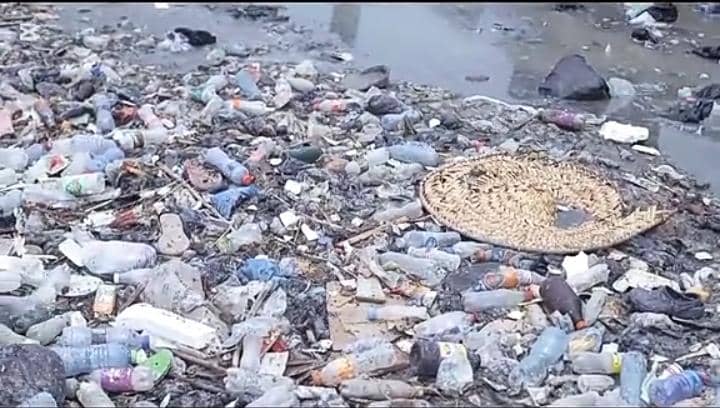
On a bright afternoon, the Sir Charles Beach in Winneba should be a picture of calm waves, golden sand, and fishermen hauling in their nets after a long morning at sea. Instead, the shoreline greets visitors with a troubling sight, scattered plastics, abandoned nets, and the stench of waste.
This is not the Winneba many remember. Once admired for its serene and inviting beaches, the town, famous for its vibrant Aboakyire Festival and rich history, now battles an environmental crisis that threatens its beauty, its people, and its heritage.
What went wrong?
The pollution choking Winneba’s beaches is no sudden disaster. It is the result of years of poor waste management, weak enforcement of sanitation laws, and the careless habits of residents and visitors alike.
Refuse is tossed directly onto the sand or into the sea. Gutters channel liquid and solid waste into the waters. Fishermen abandon nets along the shore, while children defecate on the banks. Festivals and holidays, once joyous gatherings, leave behind piles of plastics and bottles.
The Effutu Municipal Assembly, overwhelmed by inadequate waste containers and irregular collection schedules, struggles to keep the situation under control.

“Anybody that comes to the beach side just disposes of their waste materials here, and it feels as if no one cares. Sometimes some of us sweep part of the area before we start our business, but by the end of the day the place is littered again,” lamented Madam Patricia, a fishmonger by the coast. “It has become normal, and we are forced to live with it,” she added.
The problem, she says, is human carelessness that has been allowed to fester.
The risks ahead
Beyond the unsightly view, the dangers are real. Fishermen report dwindling catches as plastics and toxic waste disrupt marine life. Children who play barefoot along the beach are exposed to infections from faecal matter and contaminated objects. Tourists, too, are put at risk, their beach experience overshadowed by the threat of disease.
What was once a place of livelihood, leisure, and community pride now teeters on the edge of becoming a public health hazard.
A call for urgent action
The sight of Winneba’s polluted shores has sparked growing frustration among residents. They want swift and decisive action.
“We plead with the assembly to put in place measures that will prevent the pollution. We need enough waste bins, not just at the beaches but in the entire town. People who litter should be made to clean up, otherwise this situation will never end,” Madam Patricia suggested.
Locals are calling for regular cleanup exercises, more waste bins, and strict enforcement of sanitation laws. Yet they also acknowledge that the responsibility must be shared.
The fight for a cleaner Winneba cannot be left to authorities alone. Every resident, trader, and visitor has a role to play in restoring the beaches to their former glory.
If ignored, the coastline risks losing not only its natural beauty but also its cultural significance, marine life, and the health of the very people it sustains.
For Winneba, the time to act is now.